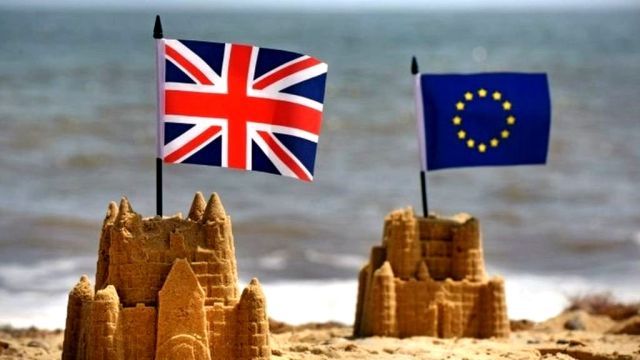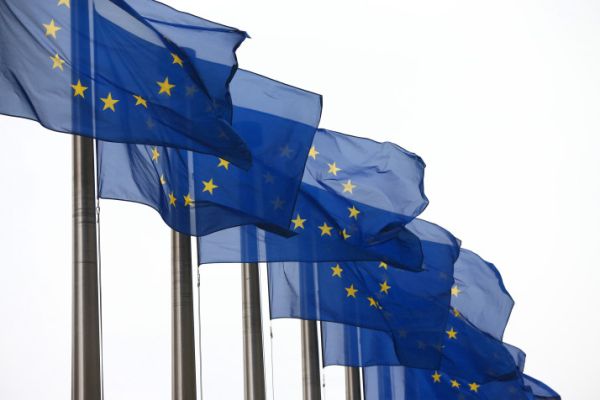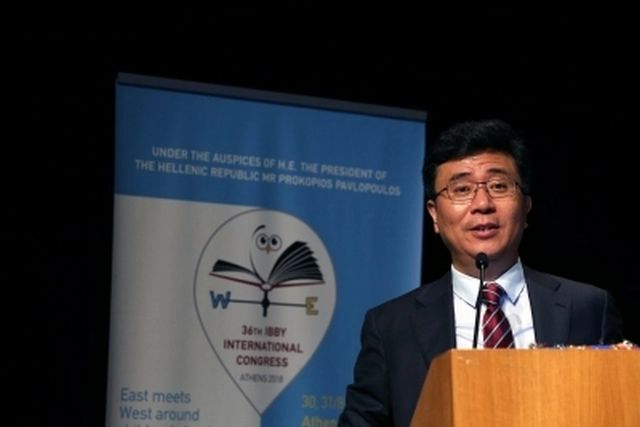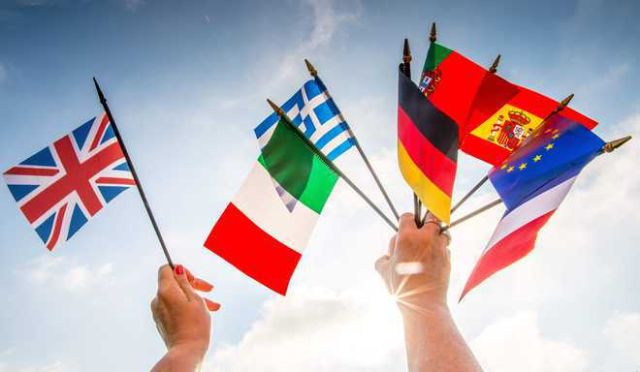
by admin | May 25, 2021 | Markets, Networking, Online Marketing, Social Media, World
 San Francisco : In the run-up to European Union (EU) elections in May 2019, Google will introduce a EU-specific Election Ads Transparency Report and searchable ad library to provide more information about who is purchasing election ads, whom they’re targeted to and how much money is being spent.
San Francisco : In the run-up to European Union (EU) elections in May 2019, Google will introduce a EU-specific Election Ads Transparency Report and searchable ad library to provide more information about who is purchasing election ads, whom they’re targeted to and how much money is being spent.
In May 2019, up to 350 million voters across the EU will take to the Parliamentary polls to elect 705 Members of European Parliament (MEPs).
“To support this democratic process, we’re rolling out products and programmes to help people get the information they need to cast their votes,” Lie Junius, Director, EU Public Policy and Government Relations, said in a blog post on Thursday.
Google will require ads that mention a political party, candidate or current officeholder, to make it clear to voters who are paying for the advertising.
“We’ll also introduce a new process to verify EU election advertisers to make sure they are who they say they are,” Junius added.
The company will also work with campaigns, elections officials, journalists, human rights organisations and others across the EU to ensure the security of the online platforms that they depend on.
“For the EU 2019 Parliamentary elections, we’re offering in-person security training to the most vulnerable groups, who face increased risks of phishing attacks,” said Google.
The company will walking them through Google’s Advanced Protection Programme and Project Shield, a free service that uses Google technology to protect news sites and free expression from DDoS attacks on the web.
“Google News Lab will collaborate with news organisations across all 27 countries to support online fact checking,” said the company.
—IANS

by admin | May 25, 2021 | Opinions
 By Amit Kapoor,
By Amit Kapoor,
Divorces are always messy, but none have so much at stake as the separation of Britain from the European Union (EU).
Almost two-and-a-half years after 52 percent of Britons who voted in favour of a Brexit, Prime Minister Theresa May has managed to draft a deal that aims to withdraw the country from the EU before the cut-off date of March 29, 2019. Even though the deal has been begrudgingly passed by May’s cabinet, there are virtually no supporters for it on either side of the Brexit debate.
Britain has four ways to go about Brexit: A hard Brexit; a softer Brexit; a sketchy middle ground where May has ended up with the current deal; or simply, no deal, where Britain drops out of the EU after the cut-off date and ends up reverting to standard international trading rules. The last case is simply catastrophic where tariff and border checks would immediately be put in place and movement of people would become restricted.
A hard Brexit would also imply the UK making a definitive split from the EU, ending its membership in the single market, customs unions and the court of justice. This would give UK more freedom to set its own rules and regulations. A softer Brexit would imply lesser change from the status quo. A really soft Brexit could even involve the possibility of UK staying on in the single market or customs union.
The major complication in coming to an agreement arises from the case of Northern Ireland. The region, which is a part of the UK, could spiral into sectarian violence if it is separated from Ireland through physical barriers or checkpoints or, in other words, a hard border, as it would limit the flow of people and goods between the two regions.
The Ireland-Northern Ireland border has been open since 1998 after the Good Friday Agreement was ratified to bring peace to the region after decades of violence. However, a clean Brexit would require imposition of hard borders between the UK and the EU, which implies a hard border between Northern Ireland and Ireland as the latter is a part of EU. Such a scenario would eventually end in rising tensions, which everyone wants to avoid at all costs.
So, the Brexit dilemma lies in coming to an agreement that retains the integrity of the UK and the Good Friday Agreement. May’s deal tries to circumvent this by letting the UK stay within the EU’s customs area, which would imply staying in the EU single market and avoiding hard borders, while allowing UK to make independent trade deals with other countries. As such a deal would not include the imposition of any hard borders, the free flow of goods and people between Ireland and Northern Ireland would remain unchanged.
However, it is obvious why such a deal has appeased no one. The pro-Brexit camp feels that the terms of the draft deal violate the very meaning of Brexit, which was to let UK regain control of its own policies. May’s plan forfeits the influential role that the UK played in the EU while making it a mere rule-taker of the union. The ability to negotiate its own trade deals would recover only a fraction of the cost of Brexit by the government’s own calculations.
Meanwhile, for the Remain camp, the deal is far worse than the status quo for almost similar reasons. The two factions have unanimously united over their dislike for the draft deal.
Such reactions should have been expected. It was evident that no one would have been satisfied with the final outcome of such a divisive issue. The very fact that no party is satisfied makes it the least unreasonable compromise. But at this stage, there is a strong case for a referendum on the exit deal. The Brexit votes were won by a very narrow margin at a time when the terms and the cost of the move were not known to the voters. There was a clear democratic deficit, which needs to be filled.
The idea of Brexit that was sold to the masses at the time was that the country would somehow manage to seize control of its policies and achieve higher prosperity in the process without incurring any significant economic costs for itself. The deal that has been chalked out in these two-plus years is nothing close to these promises of the “Leave” campaign. It is highly likely that the deal will not pass through the British Parliament itself but now that the extent of economic pain and long-term repercussions of Brexit are becoming clearer, it is vital to get a sense of the public opinion about the matter before the only option of a no-deal remains.
The latter outcome would be catastrophic for the both the British and the world economy; a prospect that is completely avoidable.
(Amit Kapoor is chair, Institute for Competitiveness. The views expressed are personal. He can be contacted at amit.kapoor@competitiveness.in and tweets @kautiliya. Chirag Yadav, senior researcher, Institute for Competitiveness, has contributed to the article)
—IANS

by admin | May 25, 2021 | World
 By Ayhan Simsek,
By Ayhan Simsek,
Berlin: Germany vowed on Monday to continue legitimate business relations with Iran under European Union law, despite the U.S. move to reimpose tough sanctions on Iran.
Speaking at a press conference in Berlin, government spokesman Steffen Seibert said Germany regretted the U.S. withdrawal from the Joint Comprehensive Plan of Action (JCPOA) agreement, known commonly as the Iran nuclear deal.
In May, U.S. President Donald Trump unilaterally withdrew his country from the landmark nuclear deal signed in 2015 between Iran and the P5+1 group of nations (the five permanent UN Security Council members plus Germany).
“In close coordination with our European partners, we are monitoring developments and examining options on how to protect the economic basis of this agreement and protect our companies,” he said.
“Under EU law, legal business with Iran should continue to be possible,” he stressed.
Washington announced on Monday new sanctions targeting Iran’s energy and and financial sectors along with its shipping industry. More than 700 individuals, entities, aircraft, and vessels were blacklisted, including 50 Iranian banks and their domestic and foreign subsidiaries.
—AA

by admin | May 25, 2021 | World
 Brussels : The comprehensive strategic partnership between China and the European Union has yielded significant fruits, said Chinese envoy to the EU on Friday, urging both sides to identify opportunities, seize them and make the best of them for a better future of China-EU relations.
Brussels : The comprehensive strategic partnership between China and the European Union has yielded significant fruits, said Chinese envoy to the EU on Friday, urging both sides to identify opportunities, seize them and make the best of them for a better future of China-EU relations.
At a policy dialogue in Brussels titled “the EU-China Strategic Partnership 15 years on-What Direction for the Next 15 Years”, Zhang Ming, head of the Chinese mission to the EU, said figures from bilateral interactions were convincing, Xinhua news agency reported on Monday.
Bilateral trade was $125.2 billion 15 years ago, while just in the first eight months of this year, trade already reached $445 billion, he said, adding that “at the end of this year, we could expect an amount more than four times that of 15 years ago.”
In the past 15 years, mutual visits increased from 3 million to over 7 million. 600 flights travel between China and the EU every week, Zhang said.
China and the EU have a comprehensive strategic partnership.
“Comprehensive means that our cooperation is not just about trade, but about a broad range of areas, like foreign policy, security, culture, science and technology, global governance, to name just a few,” Zhang said.
“Strategic” means that we embrace a big-picture and long-term thinking for cooperation, going beyond our differences in history, cultures, values and political system. In a time of uncertainties, strategic partners are poised to communicate on major issues with a sense of trust, and enhance coordination to add a sense of certainty, he added.
“China supports a united, stable, open and prosperous EU. This is our consistent and firm stance, never swayed by those pessimistic views on European integration.” Zhang said.
China has set out to expand reform and opening-up and improve business environment, he said, as “reform and opening-up is widely supported by the 1.4 billion Chinese people, and that it is a certain way to go if China wants further development in the future.”
“I understand that some European friends are eager to see even more out of reform and opening-up in China. Many of their opinions and recommendations are largely in line with our future direction. Their concerns will be gradually and properly addressed on the way ahead, like in the past 40 years,” he said.
“We have difficult challenges to tackle in the course of economic transformation. Development remains daunting, and there is still a long way to go,” Zhang said, adding that “We hope that European friends could see China’s reform, opening-up and development in a more objective light, and with more confidence and patience.”
—IANS

by admin | May 25, 2021 | Business Summit, Events, Social Round-up, World
 Brussels : The leaders of the 27 countries that will remain in the European Union (EU) after Britain’s withdrawal called off an extraordinary summit on the Brexit in November due to insufficient progress to organise the meeting.
Brussels : The leaders of the 27 countries that will remain in the European Union (EU) after Britain’s withdrawal called off an extraordinary summit on the Brexit in November due to insufficient progress to organise the meeting.
“For now, the 27 are not planning to organise an extraordinary summit on Brexit in November,” European sources said on Wednesday.
Those same sources said that the leaders stand “ready” to convene a European Council, “if and when” the EU’s chief negotiator, Michel Barnier, reports that “decisive progress” has been achieved, reports Efe news.
The Heads of State and Government of the 27 met in Brussels on Wednesday to hear a statement delivered by the British Prime Minister Theresa May, on the Brexit and then, without the UK, discussed how to proceed with the negotiations less than six months away from the planned British exit.
Brussels had planned to close the withdrawal agreement with the British government in October so the the European Parliament and Westminster parliament could ratify it before March 29, when Brexit will materialize.
During the informal summit in Salzburg in September, the President of the European Council, Donald Tusk, already said that the October meeting would be “the moment of truth” for the negotiations and that by then he hoped “the maximum progress and result”.
“If we feel that we will be able to finalise and formalise our agreement in November, I will convene this extraordinary meeting”, which would take place on November 17 and 18, the Polish politician said last month.
However, on October 14 London and Brussels failed to close an agreement and decided to stop negotiations
This Wednesday, the Heads of State and Government of the 27 reaffirmed their “total confidence” in the community negotiator, Michel Barnier, and their determination to remain united.
—IANS

 San Francisco : In the run-up to European Union (EU) elections in May 2019, Google will introduce a EU-specific Election Ads Transparency Report and searchable ad library to provide more information about who is purchasing election ads, whom they’re targeted to and how much money is being spent.
San Francisco : In the run-up to European Union (EU) elections in May 2019, Google will introduce a EU-specific Election Ads Transparency Report and searchable ad library to provide more information about who is purchasing election ads, whom they’re targeted to and how much money is being spent.



